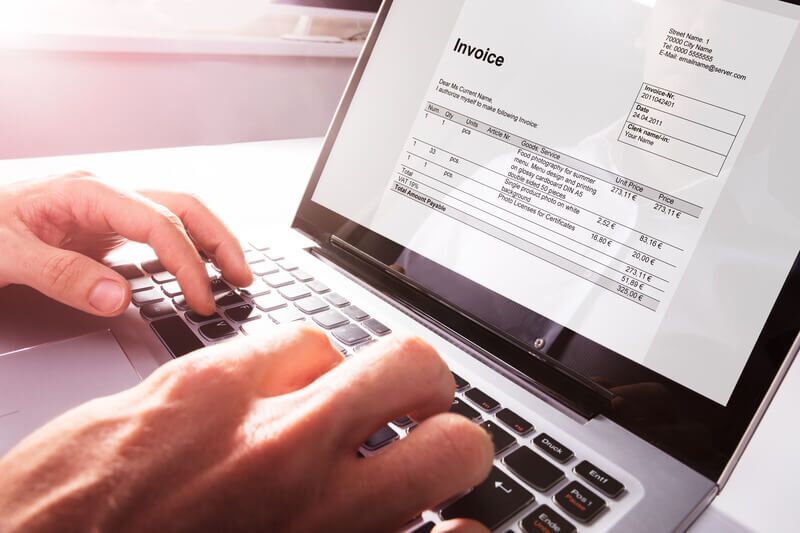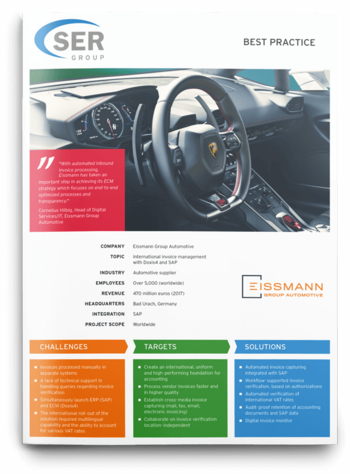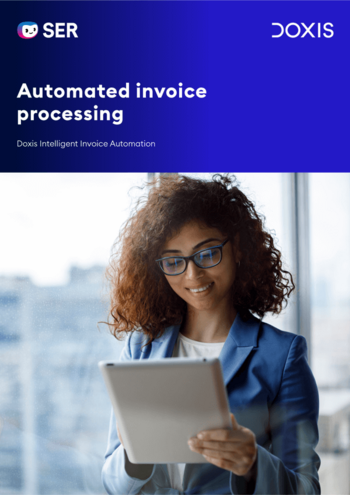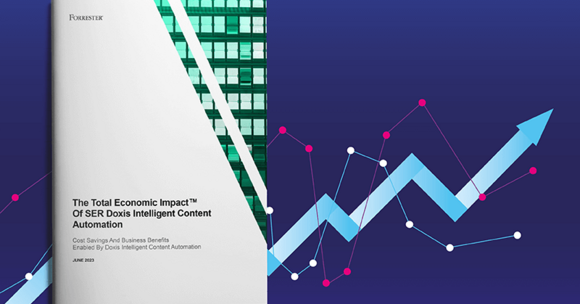SER Blog Information Governance
You need to prepare for the critical impact of Facturation Électronique 2026
It’s locked in. France is overhauling its einvoicing system, driven by the European Union’s VAT in the Digital Age (ViDA) initiative. Starting in 2026, the nation’s costly world of paper invoices will begin to phase out, with einvoicing becoming the new normal – or at least that’s the plan. Firm in their convictions, the French government is gearing up for a more streamlined, digital approach that aims to eliminate errors, inefficiencies and even tax evasion.
If you want to learn more about eInvoicing in general before we get into its tangible impacts, check out: eInvoicing: Everything you need to know.

Unwrapping Facturation Électronique 2026
The new eInvoicing mandate sweeping through France is a significant leap into the future of financial transactions. The upcoming law requires all businesses operating within France to both issue and receive invoices electronically. The goal is: streamline processes, reduce errors and clamp down on tax evasion.
Timeline of change
September 2026
Requirement for large and medium-sized enterprises:
Starting from 1st September 2026, large and medium-sized enterprises must be able to send, receive and process electronic invoices. Large businesses are defined as having more than 5,000 employees and either more than €1,500 million in revenue or €2,000 million in assets. Medium-sized businesses are defined as having between 250 to 4,999 employees and either less than €1,500 million in revenue or €2,000 million in assets. Your organization, regardless of size, must have the capability to issue and receive digital invoices via the state-sanctioned PPF (Portail Public de Facturation) or through approved PDPs (Plateforme de Dématérialisation Partenaire). You may apply for a three-month extension to this deadline, allowing them to delay implementation until 1st December 2026.
Completion of PPF: By the end of 2024, the PPF system will be fully operational, allowing for an extensive pilot program and system testing throughout 2025. This timeline ensures that companies can begin their pilot projects in 2025, well ahead of the mandatory compliance dates.
September 2027
Inclusion of smaller businesses and micro-enterprises:
By September 2027, France will require that all smaller businesses and micro-enterprises fully integrate eInvoicing systems. According to the European Commission's standards, these businesses are categorized based on size: micro-enterprises have fewer than 10 employees and an annual turnover or balance sheet not exceeding €2 million, while small enterprises are defined by having fewer than 50 employees and a turnover or balance sheet that does not exceed €10 million. This mandate ensures that companies across all levels of the French economy are uniformly participating in the digital invoicing system.
Additional details
International transactions: Guidelines for international B2B and B2C transactions will be standardized starting January 1, 2026. These guidelines are designed to simplify the complexities of cross-border electronic invoicing and ensure compliance with EU standards, including using the PEPPOL network for secure document exchange. Companies engaged in international transactions will need to align with these new requirements to ensure seamless and compliant cross-border business activities.
Exceptions and deferrals: Companies can apply for a one-year deferral to delay implementing electronic invoicing systems. This provision aims to assist businesses facing significant implementation challenges or specific hardships. To qualify for a deferral, companies must demonstrate substantial operational difficulties or justify their inability to comply by the initial deadline. The criteria and application process for these deferrals are expected to be detailed further by the tax authorities as the 2026 implementation date approaches
Preparatory phases: 2024-2025 pilot projects: The readiness phase, including licensing of PDPs and finalizing the technical setup of the PPF, will be completed by 2024. The subsequent year will focus on pilot testing with volunteer companies to ensure smooth implementation.
Aligning with the EU's vision: VAT in the Digital Age (ViDA)
France’s leap into digital invoicing is part of a larger European Union mission. The VAT in the Digital Age (ViDA) initiative sets a blueprint for how EU member states should modernize their tax systems to harness the benefits of digital technology. This sweeping reform aims to make tax systems more robust, closing gaps that have long been exploited in less digital-savvy frameworks.
Goals of ViDA:
- Enhancing transparency
By standardizing digital reporting across the EU, ViDA aims to shed light on transactions that could otherwise slip through the cracks of domestic tax systems. - Reducing tax fraud
Automated systems and electronic tracking make it harder for fraudulent activities to go undetected. - Simplifying tax compliance
For businesses, digitization means fewer bureaucratic hurdles and more straightforward tax handling.
How ViDA and Facturation Électronique 2026 are connected
The initiative does more than tick the boxes of compliance; it asserts a leadership role in the digital transformation of tax systems. By embracing ViDA legislation, France takes a step beyond adherence by carving out a new standard for tax compliance in digital business environments. This forward-thinking approach guarantees that French businesses—and their international partners—are well-prepared for a digital-first future, keeping them competitive on both European and global stages.

How Facturation Électronique 2026 will change your workplace
Picture your average accounting department where a caffeine-fueled claims handler pores over stacks of paper invoices, cross-checking purchase orders and matching them with delivery receipts. This process is mind-numbingly slow and prone to errors, but here’s what the French government envisions: Invoices arrive electronically, are automatically processed and validated, and seamlessly integrate into the company’s financial systems. The hope is that this will reduce the number of delays and mistakes, and after a brief adjustment period, provide an opportunity for employees to focus more on strategic tasks.
Financial implications
- By automating invoice processing, businesses can significantly reduce the time spent on manual data entry and error correction
- The reduction in paper use, postage, and storage needs translates directly into cost savings. Over time, these savings can be substantial.
- Digital invoices are processed faster, leading to quicker payments and improved cash flow. This can be a game-changer for businesses relying on steady cash flow to maintain operations.
Environmental impact
There’s a significant environmental upside. Reducing paper use means fewer trees cut down and less waste generated. It’s a step towards more sustainable business practices, something increasingly important to consumers and stakeholders alike.
So, you have plenty of stuff to get excited about:
- Increased efficiency: Automating invoice processing reduces manual errors and speeds up workflows.
- Cost savings: Eliminating paper and postage costs leads to long-term savings.
- Faster payments: Digital invoices facilitate quicker payment cycles, improving cash flow.
- Competitive advantage: Early adopters position themselves as innovative leaders.
- Environmental benefits: Reducing paper use supports sustainability goals.
Tech specs and compliance: Navigating France's eInvoicing framework
Facturation Électronique 2026 takes a structured approach to digital transformation. It’s really important for your businesses and your customer experience that you understand the specific formats and platforms that will become part of your daily operations starting from September 2026.
Adopted formats:
Factur-X:
A hybrid format that integrates both PDF and XML data, ensuring compatibility across different systems and providing a readable invoice that is also machine-processable. Factur-X is fully compliant with the EU norm EN16931, which standardizes the core elements of electronic invoices across Europe. This compliance ensures that invoices generated in this format can be used seamlessly within the EU, facilitating easier processing and verification.
UBL (Universal Business Language):
This XML-based format is widely used in international digital invoicing and is compatible with the EU norm EN16931. UBL's structure and data elements meet the requirements set by this standard, making it ideal for French companies involved in cross-border transactions. By adhering to EN16931, UBL ensures that invoices are interoperable and compliant with EU regulations, enhancing their acceptability across member states.
CII (Cross Industry Invoice):
Another XML-based standard, CII addresses complex invoicing needs and is applicable to both domestic and international trade. Like UBL, CII conforms to the EU norm EN16931, ensuring that invoices are structured in a way that aligns with European requirements for electronic invoicing. This alignment helps streamline the processing of transactions across different countries and systems within the EU.
Understanding EN16931:
The EU norm EN16931 defines a semantic data model for electronic invoices, specifying the essential information that must be included in any electronic invoice exchanged within the EU. This standard aims to foster interoperability and facilitate electronic invoicing across different electronic trading systems, thereby helping businesses streamline operations and maintain compliance with EU regulations.
Platform roles:
Private dematerialization platforms (PDPs):
These are third-party platforms authorized to securely handle the transmission of e-invoices, ensuring compliance with regulatory requirements. They offer flexibility and customization for businesses implementing eInvoicing systems, but may involve additional costs and require rigorous compliance monitoring.
Portail public de facturation (PPF):
Provided by the French government, the PPF is a no-cost, secure option for managing eInvoicing. It supports essential interfaces like API and EDI, enabling straightforward integration with existing business systems. While offering high security and compliance, the PPF might be less flexible than PDPs.
Opérateur de dématérialisation (OD):
These operators let businesses send invoices without needing official state certification, providing a more flexible alternative to traditional methods like PDPs and the PPF. They're a great choice for companies seeking eInvoicing solutions with fewer formalities. Among these operators, SER Group stands out. Beyond just compliance and efficiency, we bring the ease of digital transformation with leading ECM software services, helping businesses streamline processes dynamically and securely, all without the need for direct state oversight.
We understand if this sounds a bit complex, which is why most organizations are choosing to automate their eInvoicing process.

Doxis Intelligent Invoice Automation & Doxis webCube 9.1
Discover how Eissmann Group Automotive leverages the Doxis ECM platform to digitize and automate invoice processing, slashing times by over half. Get key highlights on how Doxis enhances efficiency, transparency, and compliance, and the specific Doxis InvoiceMaster modules used for global invoice management.
Compliance requirements
Businesses operating in France are required to implement robust systems that can issue, receive, and securely store eInvoices according to the standards set by the French tax authority.
Key compliance features:
- eInvoice insurance and reception: All companies must be equipped to both send and receive eInvoices.
- Data storage and security: eInvoices must be stored securely to ensure they are accessible for future audits.
- System integration: Businesses must integrate their eInvoicing systems with the approved national platforms (PPF or certified PDPs).
Penalties for non-compliance
Failing to comply with the eInvoicing requirements can result in significant penalties, aimed at ensuring adherence to the rules and preventing tax evasion.
Specific penalties include:
- Per invoice fine: Businesses face a fine of €15 for each invoice not issued in compliance with the eInvoicing mandate.
- Annual cap on fines: The total fines for non-compliance are capped at €15,000 per annum to prevent excessive penalties on businesses.
Audit and enforcement:
- Regular audits: Companies can expect regular audits by the tax authorities to verify compliance with eInvoicing requirements.
- Checks and balances: There will be rigorous checks to ensure that all systems align with the legal standards and are capable of reporting accurate transaction data.
Preparing for compliance:
Businesses are advised to upgrade their systems well ahead of the deadlines to avoid penalties. Consulting with tax professionals or legal advisors is recommended to ensure full compliance with the new regulations. By aligning with these requirements, businesses can ensure smooth operations and avoid the risks associated with non-compliance. For more detailed guidance and to stay updated with any changes in the regulations, businesses should regularly consult the official publications by the French tax authorities.
Deal with this additional invoice complexity by embracing automated processes
With France's new eInvoicing rules on the horizon, we’ve geared up our invoice automation solution to simplify the expected surge in electronic invoices. Developed in collaboration with ESALink, it’s is all about making your life easier—automating the nitty-gritty of invoice handling like data extraction and verification, which speeds up the process and cuts down on errors. It’s tailor-made for staying compliant while boosting efficiency and keeping the cash flow healthy.
Why you should digitize and automate:
- Speed and accuracy: Automates the extraction and verification of invoice data, reducing processing times and minimizing errors.
- Compliance ease: Ensures invoices are processed in compliance with new regulations, helping businesses meet mandatory eInvoicing standards.
- Enhanced efficiency: Streamlines the entire invoice handling process from receipt to archiving, which improves overall operational workflow.
- Cost savings: Reduces the need for manual input and oversight, cutting down on labor costs and potential penalties from errors.
- Improved liquidity management: Faster processing allows for quicker invoice clearing, which can improve cash flow and enable businesses to take advantage of early payment discounts.
These capabilities are part of our Doxis Intelligent Content Automation platform and we strongly recommend checking it out if you’re struggling with how to best prepare for Facturation Électronique 2026.

Doxis Intelligent Invoice Automation
Learn how to automate inbound invoice workflows, expedite invoice processing and save costs — with Doxis Intelligent Invoice Automation.
See how it worksReady for ViDA?
France’s move to electronic invoicing marks a significant shift. By embracing the EU’s ViDA initiative, they're paving the way for a more efficient, eco-friendly financial future. While challenges like startup costs and regulations exist, the benefits are clear: Businesses will operate smarter, save money, and contribute to a digital-first economy where sustainability is key.
Need help getting your systems prepared for Facturation Électronique 2026? Struggling with how to integrate the right solution? Don’t hesitate to reach out. This is what we do best.
The latest digitization trends, laws and guidelines, and helpful tips straight to your inbox: Subscribe to our newsletter.
How can we help you?
+49 (0) 30 498582-0Your message has reached us!
We appreciate your interest and will get back to you shortly.




